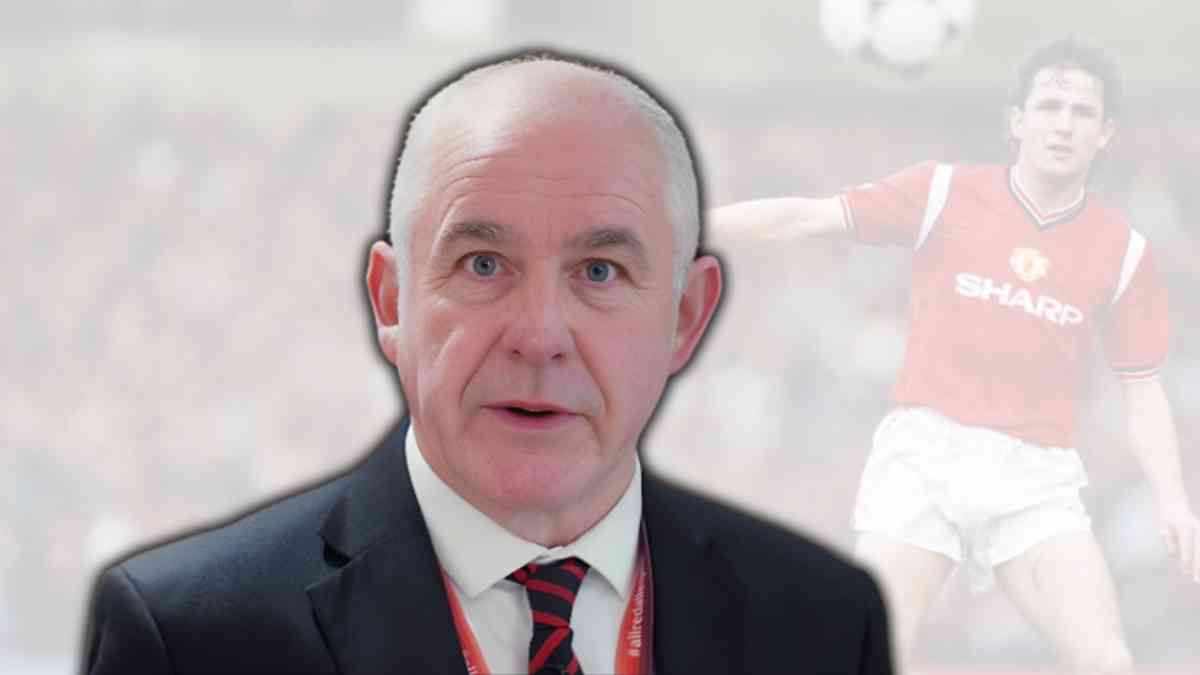Arthur Albiston: The Unsung Hero of Manchester United’s Golden Era

Arthur Albiston was born on 14 July 1957 in Edinburgh, Scotland. From an early age, Albiston showcased a passion for football that distinguished him from his peers. Growing up in a football-loving country, it was only natural for the young Arthur to pursue the sport with serious intent. He attended local schools in Edinburgh and often spent his time on local pitches perfecting his craft. His early displays of discipline, coupled with a quiet determination, set the foundation for what would become a memorable footballing career.
Joining Manchester United
In July 1972, Arthur Albiston joined Manchester United as an apprentice. This was the era immediately following the club’s golden years under Sir Matt Busby. The expectations were massive, and Albiston had to prove himself among a talented crop of youngsters. By July 1974, his hard work paid off when he signed his first professional contract. His debut came shortly after, in a League Cup match against rivals Manchester City—a daunting initiation for any young player.
He quickly rose through the ranks, displaying a quiet confidence and reliability that would become his trademark. Unlike some of his flashier contemporaries, Albiston’s game was rooted in tactical awareness, defensive discipline, and unwavering consistency.
Solidifying His Role in the First Team
By the late 1970s, Arthur Albiston had cemented his place as Manchester United’s first-choice left-back. He was a constant in the squad during a turbulent time that saw the club face relegation and a subsequent return to the top flight. He remained ever-present, even as the team underwent managerial changes and squad reshuffles.
Albiston’s ability to maintain his position over such a long period is a testament to his professionalism and ability to adapt. Between 1974 and 1988, he made 485 appearances for the Red Devils, scoring seven goals. His longevity at Old Trafford made him one of the most capped players in Manchester United’s storied history.
FA Cup Triumphs and Memorable Moments
Albiston was a crucial figure in Manchester United’s FA Cup successes. He won the prestigious trophy three times—in 1977, 1983, and 1985. In the 1977 final, Manchester United famously defeated Liverpool, preventing them from achieving a treble. Albiston’s composed performance on the left flank contributed significantly to the team’s defensive structure.
The 1983 FA Cup Final against Brighton & Hove Albion, and the 1985 final against Everton, were further highlights in his career. These moments were particularly special because they came at a time when United were struggling to find consistency in the league. The cup runs often provided relief and joy to fans, and Albiston was a dependable presence in those campaigns.
Playing Style and Attributes
What set Arthur Albiston apart was not flair or flamboyance, but dependability. He was the kind of player every manager wanted—someone who executed instructions with precision, kept his head in high-pressure situations, and rarely made mistakes.
Standing at just under 5 feet 8 inches, Albiston wasn’t the most physically imposing defender, but he made up for it with his intelligent positioning and ability to read the game. His timing in tackles was impeccable, and he possessed a calm demeanour that made him highly respected by both teammates and opponents.
Albiston also had a strong work ethic and was rarely injured. He had a remarkable run of 126 consecutive league appearances between 1979 and 1983, which is a testament to his fitness and consistency.
International Career with Scotland
Despite his club success, Albiston’s international career was relatively modest. He earned 14 caps for Scotland between 1982 and 1986. His most notable appearance came in the 1986 FIFA World Cup, where he played in the goalless draw against Uruguay. Though Scotland were eliminated in the group stages, it was a proud moment for Albiston and his family.
His style of play was well-suited to international football, where discipline and patience are key. Although he never scored for the national side, his contributions were valued by successive managers.
Later Playing Career
After leaving Manchester United in 1988, Albiston had spells at several clubs, including West Bromwich Albion, Dundee, Chesterfield, and Chester City. He also spent some time on loan with Norwegian side Molde FK. Though his post-United years were quieter, they allowed him to continue doing what he loved—playing football.
His final professional appearances came in the early 1990s, and he formally retired around 1994 after a brief period in non-league football. Even during these lesser-known stints, Albiston carried himself with the same professionalism that defined his time at Old Trafford.
Transition to Coaching and Media
Following his retirement, Arthur Albiston moved into coaching and football analysis. He returned to Manchester United in a youth coaching role in the early 2000s, sharing his wisdom with the next generation of Red Devils.
Later, he became a regular voice on MUTV, the club’s in-house media channel. His calm, analytical approach made him a fan favourite among viewers. Unlike pundits who chase controversy, Albiston offered thoughtful, grounded commentary based on years of experience.
Legacy and Recognition
Arthur Albiston may not be a household name globally, but within Manchester United circles, he is revered. He embodies an era when players stayed loyal to one club for extended periods and let their performances do the talking.
In a time when football is increasingly driven by commercial interests and individual branding, Albiston’s career serves as a reminder of the values that once defined the game—consistency, humility, and professionalism. His contributions to Manchester United’s success in the 1970s and 1980s remain etched in the club’s history.
He is regularly invited to Old Trafford for club events, testimonial matches, and veterans’ functions, where he is warmly welcomed by fans old and new.
Personal Life and Character
Off the pitch, Albiston has always maintained a low profile. He is known to be a private individual, devoted to his family and close friends. Despite spending over a decade in one of the world’s most high-profile clubs, he avoided the limelight and controversy.
Colleagues and former teammates describe him as soft-spoken, reliable, and generous with his time. These personal qualities endeared him not only to fans but also to those he worked with daily.
In interviews, Albiston often reflects on his career with humility. He never speaks ill of past managers or teammates, and his gratitude towards Manchester United is always apparent.
Conclusion: A Quiet Legend of the Game
Arthur Albiston’s story is one of quiet excellence. While he may not have lifted the World Cup or dazzled fans with outrageous skill, he achieved something perhaps even more difficult—sustained excellence over a long period in one of football’s most demanding environments.
For young footballers looking to make a mark, Albiston’s journey offers invaluable lessons. It’s not always the loudest or flashiest who succeed. Sometimes, it’s the consistent, the disciplined, and the quietly determined who leave the most enduring legacy.



